I cannot imagine a world without cats! They are such loveable, caring, and pretty creatures. Though certain cat behaviors prevent them from gaining a place in everyone’s heart, I believe with just a little more understanding of the causes behind their strange actions and how to deal with them the world will become a better place.
If you do not have a pet in your home you may consider taking home a rare, exotic and expensive cat breed, but I strongly suggest you opt for pet adoption.
Adoption has many benefits, whether it be a small dog or a cute cat, these little friends will light up your life with their affection and become a part of your family before you know it.
However, certain cat behaviors may puzzle you as a cat owner. It may be them making a dough or scratching your favorite plushie. Your cat might be having 2 A.M. zoomies or urinating across your furniture.
“There are no ordinary cats”
-Colette
There is no accurate cheat sheet for weird cat behaviors. Every cat has its own normal and abnormal behaviors. According to Kelly Hicks, a medical oncology resident veterinarian at Oregon State University,
“Each cat is different in how they display their emotions, so it may take some time to fully understand the behaviors that are unique to them.”
-Kelly Hicks
10 Most Common Cat Behaviors & What They Mean
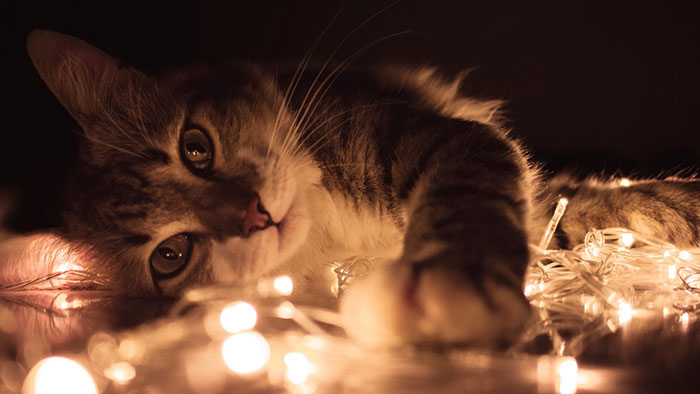
Behavior problems are stressful for both the feline and the owner. They often lead to cat parents giving up on their pets because they become frustrated after failing to understand the cause behind their pet’s actions. If you are also mystified regarding the puzzling behavior of your kitties, then keep reading.
1Excessive Self-Grooming
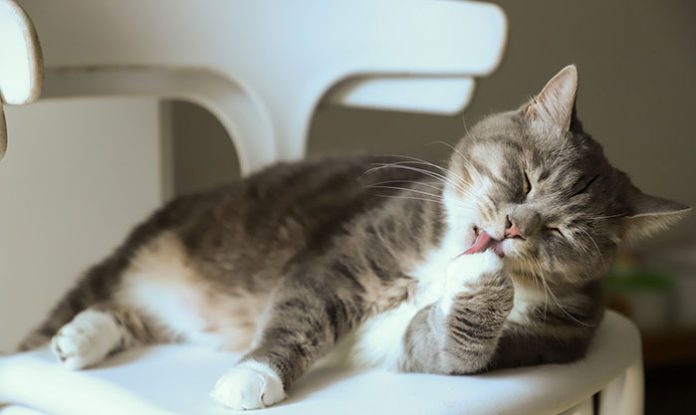
Self-grooming is a normal behavior of cats. Usually, cats groom themselves to remove dirt, loose hair, and parasites from their fur.
According to PetMD, cats spend over 50% of their working time licking themselves clean. It helps them remain clean, calm, and warm. Every cat has its own grooming pattern. Over-grooming is when your cat grooms way beyond its usual routine.
Excessive self-grooming might be due to the following reasons:
- Allergy or Infection.
- Pain or Skin Problem.
- Stress or Boredom.
It often results in patches of broken hair and damage to the skin. Keep an eye on your cat’s grooming behavior to notice any change quickly. Consult a veterinarian to know the underlying cause and remove it.
Also Check: Fungal Acne: Causes, Symptoms, Treatment
2Paw Kneading
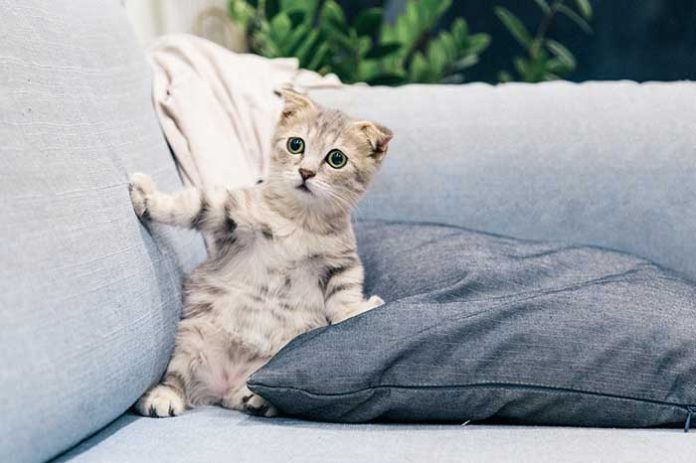
A cat pushing its front paws in and out in a motion resembling making biscuits is called kneading. Cats usually knead any soft surface, such as a pillow, blanket, or lap.
There is no concrete reason as to why cats knead or make dough. Most cats knead to show love and comfort to the owner or calm themselves when stressed. While some experts call it a residual behavior from their nursing time as a kitten.
“Cat kneading- also known as making biscuits- is a behavior that shows their love for you.”
-Dr. Sara Ochoa, a veterinary consultant at doglab.com
Kneading is not necessarily bad behavior. But it can cause damage, especially when your cat is kneading with its claws. Trim your pet’s nails to minimize the damage. Or, keep a soft cushion or blanket for your kitty to knead whenever she wants. It would be one of the best gifts for your cat.
3Destructive Scratching
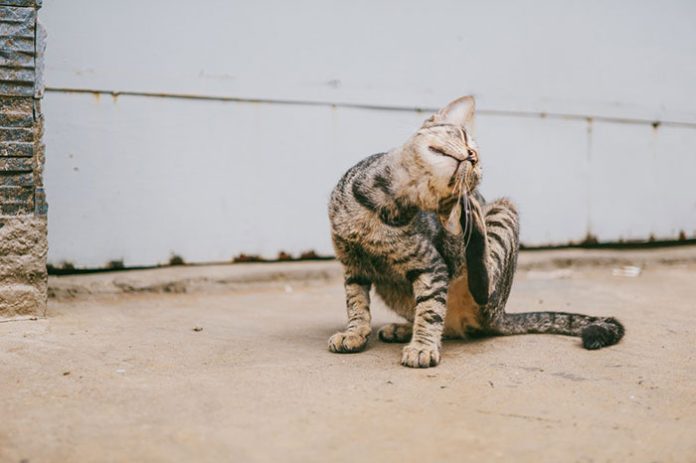
Another cat behavior to worry about is scratching. Burying and scratching are instinctive behaviors of cats. Cats usually scratch at different surfaces for either of the following reasons:
- To mark their territory.
- To clean their claws.
- Stretching or playing.
Scratching does damage your walls, furniture, and cushions. But, it is easy to protect your household from the claws of your feline friend. Get scratching posts for your pet cat to help them scratch off their energy.
You can also cover surfaces that appeal to your cat the most with tape or aluminum foil. Trim your cat’s nails regularly or use nail caps to minimize the damage.
4Aggressive Cat Behaviors
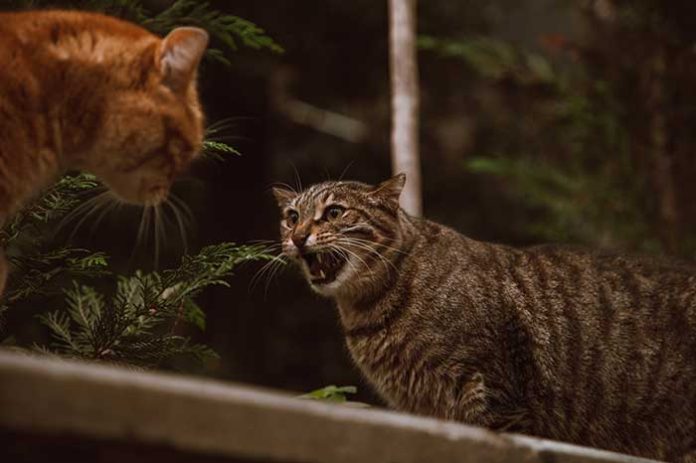
Did you just shriek, “why is this cat biting me suddenly?”
It might be because your cat is getting aggressive towards you!
Aggression is one bad cat behavior, often directed towards another cat, human, or other animals. Cats get aggressive due to several reasons:
- Feeling fearful or defensive.
- Getting possessive over their territory.
- Aggression between household cats. (common male cat behavior)
- Medical issue or pain.
- Play aggression.
Aggression plays out mainly by the body language and postures of your cat. Stiff body, straight-legged posture, lower head, growling, direct stare, and lowered tail are a few signs of aggression.
“The cat’s tail and eyes are probably the two most communicative body parts.”
-Molly DeVoss, a veterinarian behaviorist at Cat Behavior Solutions.
Always consult a veterinarian in case of aggressive episodes. Having a cat insurance plan is beneficial for any medical issue with your pet. After ruling out the pain and sickness, watch out for other triggers.
Bonus Tip: Never push or punish an aggressive cat. It might redirect its aggression towards you, which we believe would not be good for anyone.
5Nighttime Zoomies
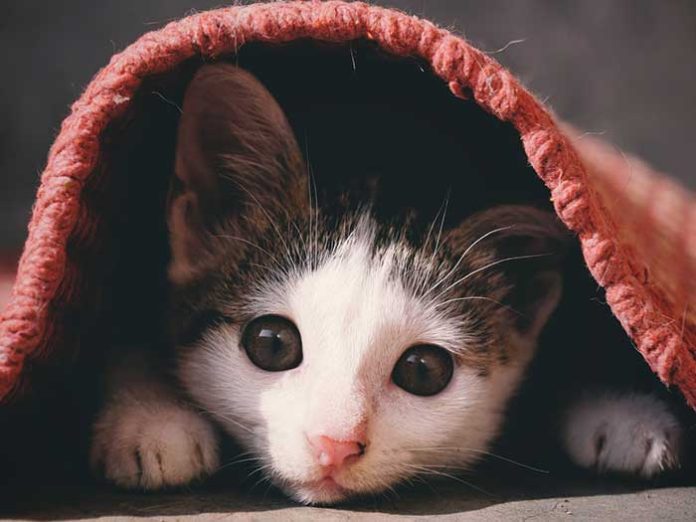
If you are a cat parent, you must have trouble sleeping once in your life because your pet could not help itself. Nighttime zoomies- also called crazy capering- is a common cat behavior. Running madly around the house and being their most active at 2 A.M. are parts of it.
It could be due to several reasons, such as medical issues, hunger, or plain boredom. Mikel Delgado, a postdoctoral fellow at the School of Veterinary Medicine, tells inverse.
“One reason is that cats are naturally crepuscular, meaning active at dawn and dusk, which is when their natural prey (rodents) are active. So their internal rhythm just tells them, ‘it’s time to get active and start hunting.”
-Mikel Delgado
To avoid too much nighttime madness, keep your pet active during the day. Provide them with enough enrichment, exercise, and stimulation. Give your kitty its main meal at night and have a play session before bedtime. It leads to a peaceful nighttime sleep for your kitty.
6Urine Marking
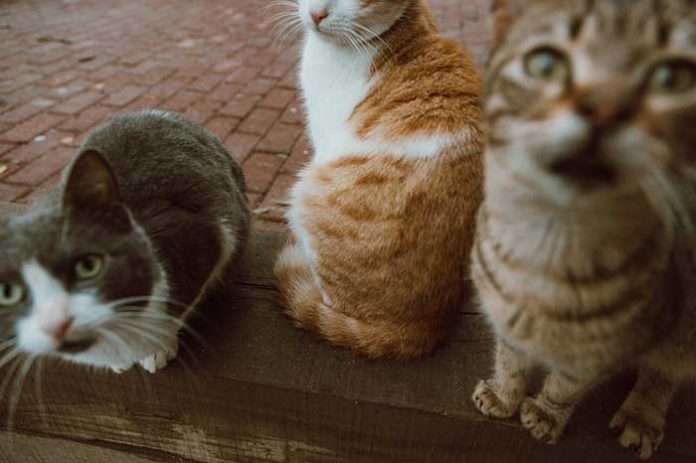
Another most common house cat behavior problem is improper urination. It might be a medical problem or sickness (consult a vet) or urine marking.
In nature, cats’ urine marking is due to the following reasons:
- Marking their territory.
- Getting familiar with their environment.
- By female cats to attract male cats during the breeding season.
- Unneutered male cats.
A pet cat usually gets comfortable around its home range with urine marking. You might have seen your cat approach a vertical target (such as a chair), smell it, turn, lift its tail, and spray a bit of urine on the target.
To avoid urine marking, neuter your pet cat. Also, reduce the aggressive interaction of your pet with other cats.
7Litter Box Problems
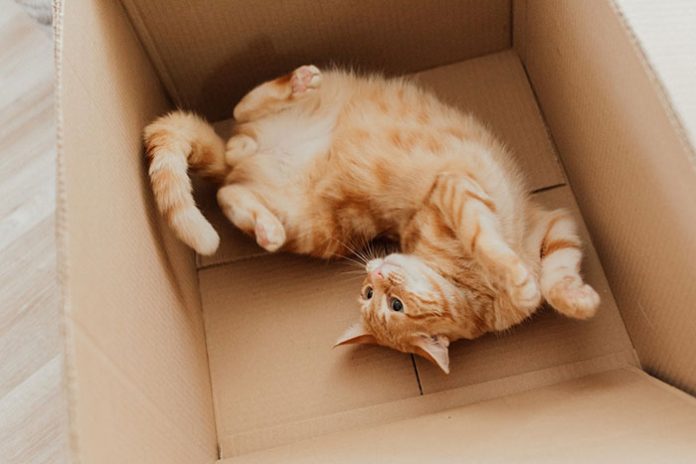
House soiling is another problem you might be facing with your kitty. Cats might house soil for many reasons, such as medical problems or environmental changes.
Medical conditions that usually lead to litter box issues are infection, bladder or kidney stones, constipation, or joint pain. Behavioral issues primarily include a change in litter box location, type, color; change in the litter; stress due to a new place or new cat.
Litter boxes and litter play a key role in setting a litter habit. If you have more than one cat, keep a separate litter box for each. Also, keep the litter box clean at all costs to prevent parasitic infection. Benjamin L. Hart and Lynette A Hart advised in their book, “Your Ideal Cat”,
“Once your cat is accustomed to a litter box or litter, try to keep it consistent.”
Related Book: Your Ideal Cat by Benjamin L. Hart and Lynette A Hart
Housesoiling is frustrating, no doubt! But finding out the root cause and helping your pet with it is worth it. It helps to strengthen your relationship with your kitty and maintain its living place.
8One of the Unusual Cat Behaviors: Flaunting Their Prey
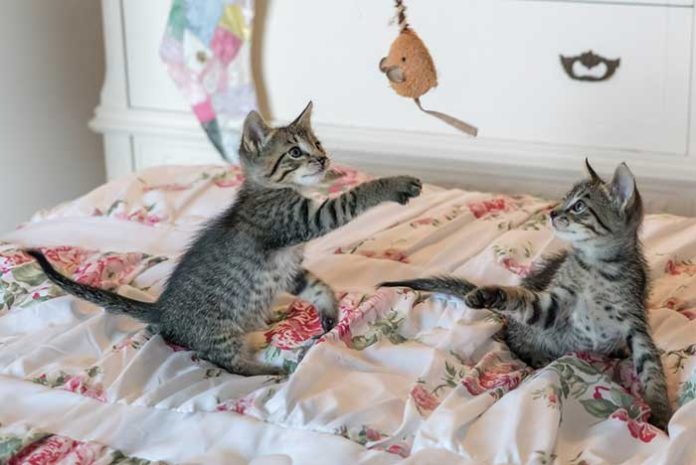
While traveling with your cat, you must have gotten a present or few. Yes, those muffled rabbits, dead mice, and unfortunate birds!
Cats are hunters by nature. Your kitty might be hunting those little animals for two reasons: primal instinct and boredom. Hunger usually has very little to do with the hunting behavior of cats.
Your cat would often present their prey to you. Some experts say cats consider you as their kittens and teach you prey recognition. Some think, by doing so, cats include their favorite human in their hunting success.
Albeit natural, hunting is not a preferable behavior. To curb your cat’s hunting habit, provide it with enough stimulation in the house. Robbie McDonald, a professor at the University of Exeter, concludes in a study,
“By playing with cats and changing their diets, owners can reduce their impact on wildlife without restricting their freedom.”
-Robbie McDonald
9Senior Moments
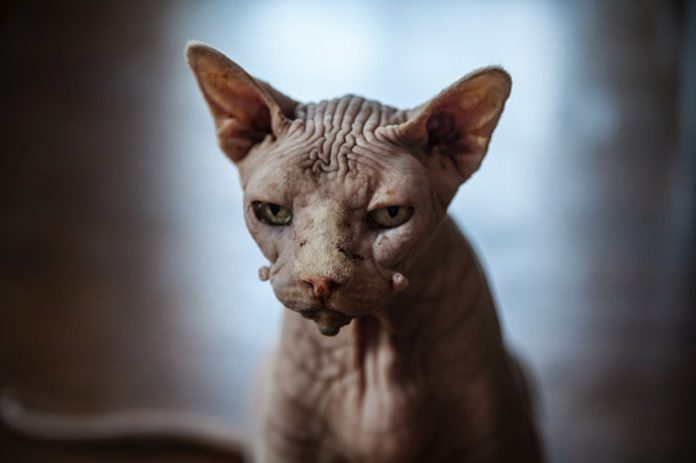
With increasing age, a decline in cognitive functioning often leads to senior cats’ odd behaviors. Memory, sight, learning, awareness, and hearing are some functions that deteriorate with age.
As per a study, feline cognitive dysfunction (FCD) affects over 80% of cats aged 16 to 20 years. It affects sleep patterns, activity, learning abilities, and overall being. Old cats can often forget the location of their food bowl or litter box.
Increasing age and declining activity also affect the behavior of your pet. It leads to anxiety, aggression, irritability, and decreased social interaction.
Therapy and medications can be helpful in FCD. Also, make changes to the cat’s environment and keep her routine consistent. Always be kind and compassionate with your aging feline friend.
10Yowling or Meowing
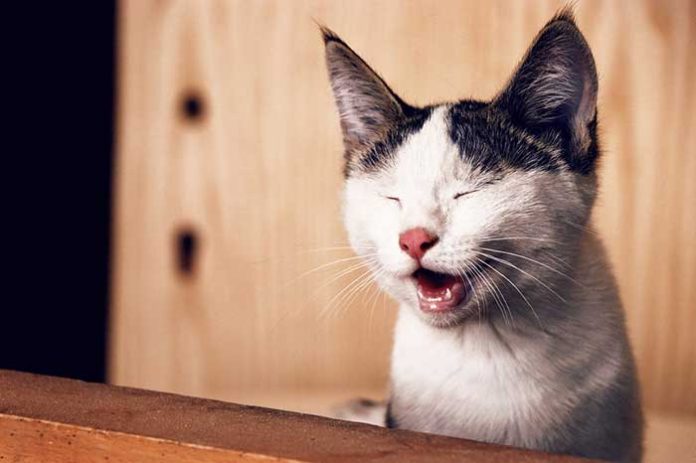
There are many reasons why cats yowl or meow intensely. Yowling can be due to excitement, agitation, aggression, and anticipation.
Cats also become very vocal and loud when they are in heat. They meow and yowl a lot to attract their male counterparts. Similarly, male cats also get loud when they hear a female cat in heat.
The best way to fix the yowling of a cat in heat is to get them neutered or spayed. Other than that, watch out for the potential reasons your cat could be getting loud for. She might be in pain or threatened.
Understanding Cat Behaviors Is Important!
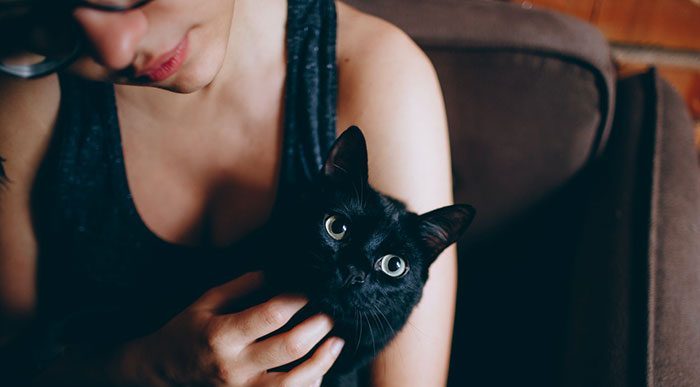
Seeking and understanding the behaviors of your cat is important. Tackling bad behavior is crucial for a healthy and strong relationship with your pet.
If you are a cat parent, never ignore any abnormal behavior your cat is exhibiting. Always consult a veterinarian for medication and therapy. Keep the surroundings of your cat enriched, happy and calm. You would have the purr-fect time with your feline friend!





